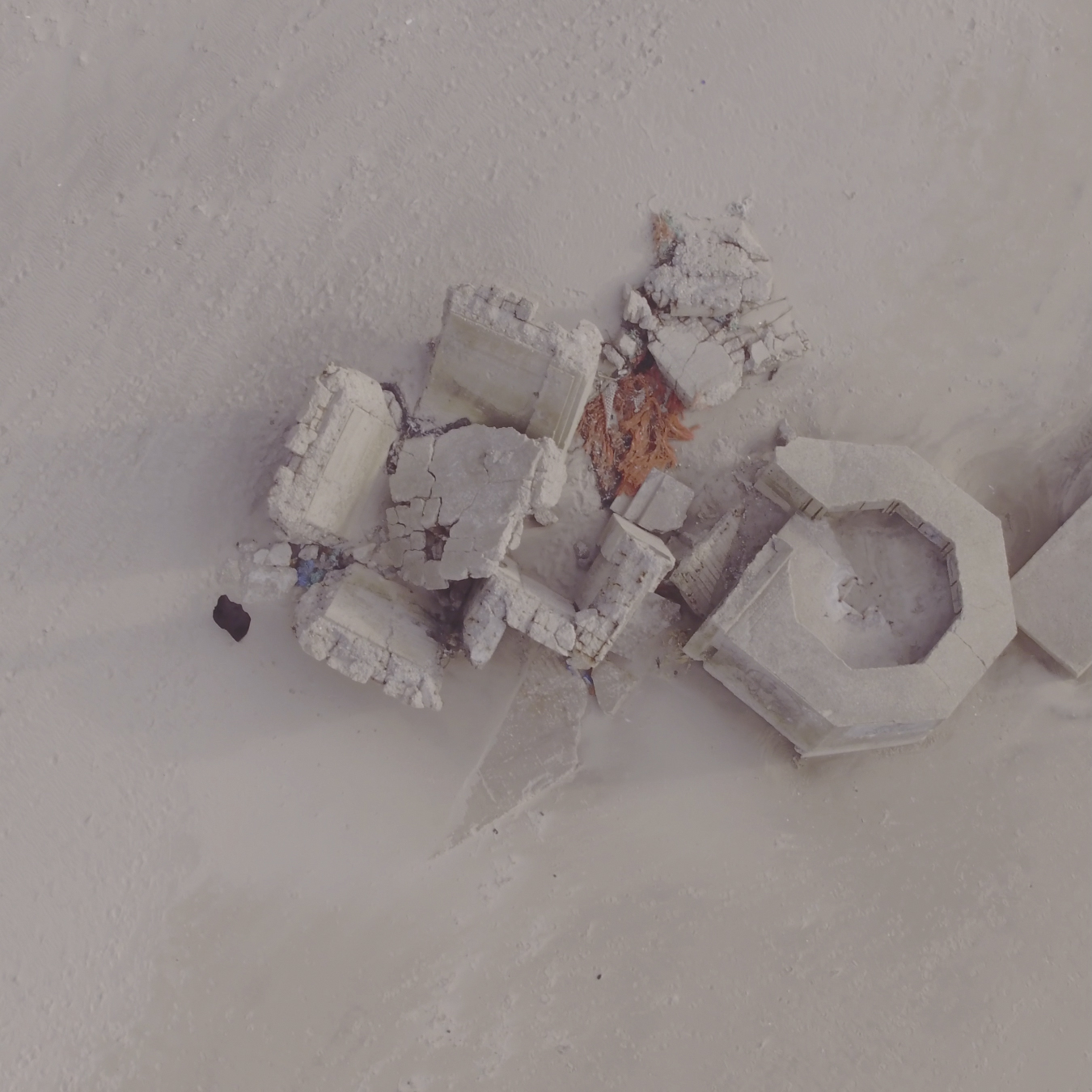Estran
documentary, 8’, 4K, France, 2018installation, 20’ (loop), binaural / quadraphony, HD, France
sculpture, ebony and steel, 93 cm x 24 cm x 9 cm (base)

C’est une marche au désert. La marche d’un jeune Guinéen arrivé en France à l’hiver 2016. Sa parole a quelque chose en commun avec certains versets des Écritures. Le film les fait dialoguer à travers le corps d’une femme rendue au silence d’un deuil biblique et contemporain. Au sol, puis au mur, l’empreinte d’un espace absent : une ouverture traversée par la lumière d’un soleil. Envisagée comme un phénomène physique autant que comme une inquiétude métaphysique, cette découpe lumineuse dément les propriétés d’un éclairage fonctionnel, en provoquant une coïncidence ponctuelle et partielle de la lumière avec la sculpture.
It is a walk to the desert. The walk of a young Guinean boy arrived in France at the end of 2016. His voice, his words have something in common with some of the Scriptures’ verses. They dialogue through the silent body of a woman who grieves a biblical and contemporary loss. On the ground and on the wall, a luminous print of a virtual space: a window crossed by a beam of sunlight. Considered a physical phenomenon as much as a metaphysical concern, this rectangle of light contradicts the properties of a functional lighting, causing a limited and partial coincidence between light and sculpture.

///
“Assia Piqueras, par le dispositif qu'elle crée dans cette œuvre, nous rend l'intensité d'un déchirement en nous installant au cœur d'une oraison. Son travail se réfère à l'Ecclésiaste qui, comme toutes les grandes œuvres, nous apprend qu'une pensée ne peut cheminer en nous que si elle a généré une écriture et un rythme qui peuvent entrer en accord avec notre vibration intérieure.”
"Through the device she creates in this work, Assia Piqureas makes us experience the intensity of a heartbreak by putting us at the heart of a prayer. Her work refers to Ecclesiastes which teaches us, like all great works, that a thought can only travel within us if it has generated a writing and a rhythm that matches our inner vibration.”
Interview by Francine Auger-Rey, septembre 2018
Article by Emmanuel Tellier, Télérama, septembre 2018
avec
Lamine Diallo
Sixtine de Thé
réalisation, écriture, montage & sculpture
Assia Piqueras
production
Le Fresnoy - Studio national des arts contemporains
assistant réalisateur
Constantin Jopeck
repérages
Yoann Helynck
directrice de la photographie
Alexandra Sabathé
drone
Mathieu Baillet
ingénieur du son
Sébastien Eugène
régie
Thomas Guillot
coréalisation des entretiens
Camille Martin
musique
Antonin Rey
habit
Paul Kaplan
montage son et mixage
Rémi Mencucci
étalonnage
Baptiste Evrard
mapping / lumière 3D
Pierre-Yves Boisramé
équipe technique
Christophe Gregório
Cyprien Quairiat
Sébastien Cabour
François Bedhomme
Pierre Le Lay
Gaîté Lyrique, screening, curated by Anna Tardivel, Paris, FR
Cine estudio (Círculo de Bellas Artes), screening, curated by Fabienne Aguado, Madrid, ES
2018
Panorama 20, group show, curated by José-Manuel Gonçalvès, Le Fresnoy, Tourcoing, FR
